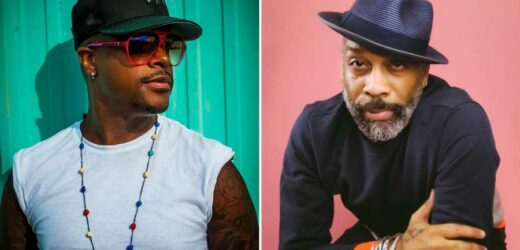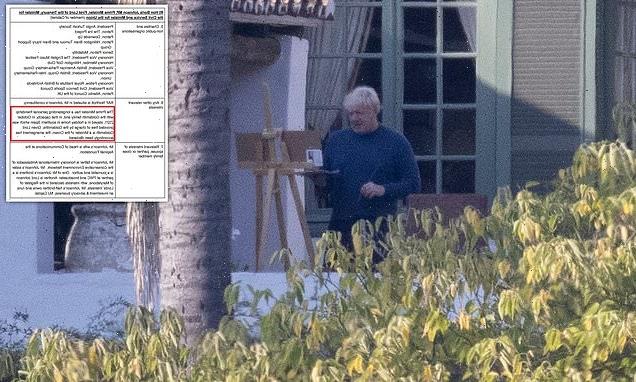Since 1997, Rahsaan Patterson has specialized in handsome songs, loving and lovelorn, packed with vocal pirouettes, supple pleading, and lush harmonies. The singer draws from R&B’s venerable Quiet Storm tradition, making music that would fit comfortably next to oldies by Anita Baker and Stevie Wonder. But when Patterson entered the music industry in the Nineties, R&B was growing less interested in “Quiet” and more interested in “Storm” — a certain amount of musical thunder was necessary to compete with hip-hop.
Still, Patterson found a niche, sprinkling more than a dozen pillow-soft R&B radio hits across five albums. But all this time, he was quietly harboring another passion. “I love house music,” he says. “I grew up in New York with parents who were Studio 54 folks, Paradise Garage folks. Growing up in the mid-Seventies and early Eighties, there was a lot of disco played in the house, and that transitioned into house music. That groove has always hit my gut.”
Related Stories
'We Can Do It Ourselves': R&B Singers Are Leaving Major Labels
Maxwell Is Finally Free
Related Stories
The 80 Greatest Dylan Covers of All Time
50 Greatest Movie Superheroes
Earlier this month, after more than 20 years as a professional singer, Patterson fully embraced his “love for four on the floor.” He turned his entire 2019 album Heroes & Gods over to the house producer Quentin Harris to be reworked. The result, Heroes & Gods 2.0, is an achievement for both men.
Patterson had taken tentative steps towards the dance floor on his albums — notably on the lovely “Get Here,” made with house luminary Steve “Silk” Hurley, and “Burnin’,” both of which a DJ could play early in the night, as club-goers start to shake off the dust of the week. But with Heroes & Gods 2.0, the singer cannonballs into the deep end, making a bid to soundtrack ecstatic, twirling peak hours.
The album also represents a welcome return for Harris. Some of his productions from the 2000s, including stirring, surging tracks like “My Joy” and “Traveling,” remain dance-floor staples. But his output has slowed of late, and he hasn’t released anything new since 2017. Several tracks on Heroes & Gods 2.0 show that Harris’ knack for intricate vocal house is undimmed.
Patterson says he’s been interested in Harris’ work since the producer re-did “Joy,” a song by Houston-born backing-vocalist-turned-R&B-singer Trina Broussard. “Sometimes you get great house that just focuses on the drums, the bass, the groove part, but not necessarily other instrumental factors,” Patterson explains. “I always enjoyed the musicality in [Harris’] approach to house music.
“There’s also such an element of spirit in his work — it’s uplifting,” Patterson continues. And on top of that, Harris “gives you darker, sinister bass lines that I love, which reflect certain moods that we have.” In summary, Patterson says, “I think he’s ridiculous.”
Harris is similarly enamored of Patterson, who wields his falsetto like a fencing master, darting and parrying with uncommon grace and skill. (Listen to the recklessly talented ad-libs in “Get Here” around four minutes in, and the way he rises up behind the lead right before the minute mark in “Burnin’.”) Harris calls Patterson “one of the most underrated male vocalists of our time.” “I’ve always been a champion for male vocalists,” the producer adds, and Patterson “uses his voice like an instrument, which is exciting to me — not everybody has that ability. No one sounds like him.”
Harris is so enthusiastic about the singer’s abilities that he confesses to being a little intimidated to start work on their collaboration. “There was pressure on me,” he acknowledges. “This is the first thing people are going to hear from me in a while. And it’s Rahsaan, so it has to be good.”
Some days, Harris found himself turning on equipment in the studio and “just look[ing] at it,” waiting for inspiration to drop from the sky. “What’s going on?” he wondered. “I hope I’m not getting some kind of writer’s block.”
His breakthrough came when reworking “I Try,” which melds a “sinister bass line” with a tale of romantic dysfunction. For most tracks, Harris, who plays keyboards, brass, “a really bad set of drums,” and “a really bad bass,” built an entirely new musical bed. Patterson sent over all the parts from his Heroes & Gods sessions, so Harris could graft vocal leads, harmonies, and ad-libs onto the new compositions.
Some of the songs on Heroes & Gods 2.0 reach back to Harris classics — the producer’s update of “Silly, Love, Fool,” with its pretty stacks of vocals and caffeinated beat, would fit well after “My Joy.” Other tracks hint at different house forebears: “Don’t You Know That” is a cover of a standout Luther Vandross single, but the serrated, menacing tone of the guitar evokes Romanthony, a Nineties vocal-house stalwart, especially the song “Never Freak.”
The house vocalist Ultra Naté, who had a string of club hits in the Nineties, once told Harris that his productions reminded her of “The Oompa Loompa Song” from Willy Wonka and the Chocolate Factory. “I know I have a sound,” he says. “I said [to Ultra Naté], ‘Why do you call it that?’ [She said] there’s a cadence, a bounce to my records, that reminds her of that song.” He calls “Silly, Love, Fool” “almost the epitome of the ‘Oompa Loompa.’ ” “It’s really funky,” he adds.
Throughout 2020, Harris would send mixes to Patterson, who would provide occasional notes. “He maintained the essence of the original,” the singer says, “but elevated it, and took it to the cosmos, which is where we reside as house-music lovers.”
But a project like this wouldn’t be a success if it wasn’t embraced by Patterson’s fellow house-heads. Before releasing Heroes & Gods 2.0, the singer started to seed some of the tracks in the dance community. “I was just sending it to a few DJs hoping they could get into it, and perhaps love it enough to want to spin it,” Patterson says.
He sent “Catch Me When I Fall,” a giddy tumble of vocal heroics paired with a driving beat, to Natasha Diggs, who’s known for spinning vital sets of house, funk, and disco. Patterson crossed his fingers and waited for a reply. He got what he needed. “She hit me back,” he says happily: “‘Oh, I’ll definitely be playing this.’ “
Source: Read Full Article



